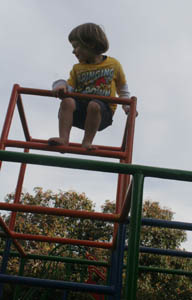New International clinical practice recommendations on DCD
These international clinical practice recommendations (CPR) for developmental coordination disorder (DCD), initiated by the European Academy of Childhood Disability (EACD), aim to address key questions on the definition, diagnosis, assessment, intervention, and psychosocial aspects of DCD relevant for clinical practice. Read more

Developmental Coordination Disorder
About 6-8 % of children appear to be developing in the usual way yet have difficulties with coordination and with learning new skills which affects their function and participation at home, at school and in the playground. Developmental Coordination Disorder (DCD) is the internationally accepted name for this condition. Read more

Difficulties children may experience with learning a new motor task
Typically developing young children learn new, age-appropriate skills with little formal instruction. They observe and imitate, experiment with different ways of doing things (trial and error learning) and learn quickly from instructions. Young children learn new skills at an amazing rate and and in such an easy manner that many of the underlying processes that contribute to such learning are taken for granted. Read more
Motor learning and effortful control
Effortful control is a dimension of temperament that includes the ability to manage attention and inhibit (inhibitory control) or activate (activational control) to adapt behavior as needed, especially when a child does not particularly want to do so. Read more
Why adopt a task based approach to therapy?
There are two basic reasons for changing from a process to a task and goal oriented approach:
Firstly the evidence shows that task based approaches are more effective in bringing about changes in children’s motor abilities and participation.
The second reason is that advances in our understanding of motor development, control and learning from the latest neuroscience research literature provides a host of new insights into the many factors that contribute to task performance – and how the specifics of motor control are tightly linked to the task and context. You cannot separate sensorimotor control from the context and task demands. Read more
Subscribe to SfA Therapist Resources
Subscribe here
Active mobilization
Principles of active mobilization
Exercises instructions
Fitness and Coordination Online Trainingp Guide
Permission to copy PDF HEP files
Request HEP activities
Subscribers can make suggestions for HEP instructions or request images of exercises for creating your own HEP sheets

